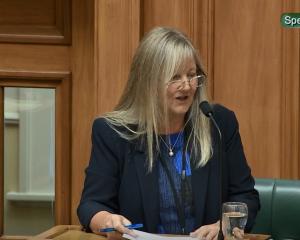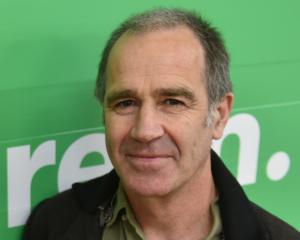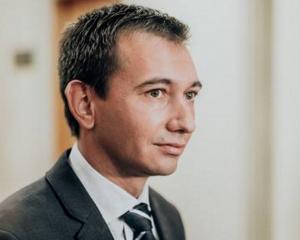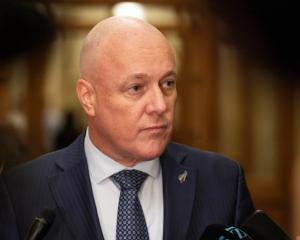
Former Prime Ministers of New Zealand are among those starting to rally behind Helen Clark as she launches her campaign to be the next Secretary-General of the United Nations.
Miss Clark today confirmed her bid for the post. The Secretary-General leads the UN Secretariat and serves at least one five-year term. Incumbent Ban Ki-moon is retiring on December 31.
She was New Zealand's Prime Minister from 1999-2008 and is currently head of the UN Development Programme, overseeing a global budget of $6 billion in 170 countries and a staff of 7500.
Today #NZ Prime Minister @johnkeypm announced Govt nomination of me as UNSG. Looking 4ward 2 the campaign. Follow me on @Helen4SG #Helen4SG
— Helen Clark (@HelenClarkUNDP) April 4, 2016
Miss Clark will go up against at least seven others - including three women. They are Unesco Director-General Irina Bokova of Bulgaria; former Moldova foreign minister Natalia Gherman and Croatia's former foreign minister, Vesna Pusic.
The other confirmed candidates are former Slovenia President Danilo Turk, former Prime Minister of Portugal Antonio Guterres, who was also a UN Commissioner for refugees, Montenegro Foreign Minister Igor Luksic and Macedonia's former Foreign Minister Dr Srgjan Kerim.
• Clark 'deeply honoured' to run for top job
• Who will be the next Secretary-General?
When announcing the New Zealand Government's nomination of Miss Clark for the role, Prime Minister John Key said he expected former leaders and other prominent ex-politicians, such as Dame Jenny Shipley and Don McKinnon, to take on roles as informal envoys to help push for her election.
Mr Bolger said she had the skills and experience for the role and was well known in New York.
"But perhaps the strongest point - and this came through in the campaign for the Security Council which I was heavily involved in - is that New Zealand has a strong brand as a country that can address issues pragmatically, not get locked into one or other side.
"We don't claim as [former Australian Prime Minister] John Howard did that he was 'deputy sheriff' for America."
He said the five permanent members on the Security Council (China, France, Russia, the United Kingdom and United States were critical in deciding who got the role and that could help Miss Clark: "we have as good a relationship with all five without being locked into any as probably anyone."
Former Labour Prime Minister Sir Geoffrey Palmer said he would do what he could to help Miss Clark's cause with his international contacts.
"I'm very happy to be called on and very happy to help. I think it would be great for New Zealand if Helen were able to prevail in this matter."
He said it would be a difficult field and could depend on whether Eastern Europe were able to get behind one candidate, but New Zealand should do what it could to back Miss Clark. "There's a lot of people in this race, but it's going to be a woman I think."
Sir Geoffrey said he hoped that would be her. "She's an extremely able person and she's had a lot of experience."
He said he had seen that first hand in 2010 when he was in New York chairing the UN's Panel of Inquiry into the Gaza flotilla incident. "I think she'll be an admirable candidate."
Dame Jenny Shipley has not yet commented and a former Labour Prime Minister, Mike Moore, said he had no comment.
Mr Moore returned to New Zealand from the United States in December after ill health forced him to give up his role as ambassador.
The support of former politicians and Mr Key was echoed by current political leaders across the board.
Labour leader Andrew Little said he was proud of Miss Clark, a former leader of the party, describing her as a "trail blazer."
"Renowned for her steely determination and formidable capabilities, she would make an excellent Secretary-General. I have immense trust in her judgement and values and I know she will have the whole of New Zealand cheering her on."
New Zealand First leader Winston Peters said he was pleased the National Government had followed the tradition of supporting erstwhile political opponents into international posts - as had happened with Mike Moore as director general of the WTO and Don McKinnon as Commonwealth Secretary General.
"We wish her nomination every success."
Green Party co-leader Metiria Turei said the Greens also supported Miss Clark's bid: "It is time for a woman to lead the United Nations. Helen Clark has the experience and integrity to do the job."
Rudd eyes role
Helen Clark's potential rival for the top UN job, former Australian Prime Minister Kevin Rudd, has tweeted best wishes to her on the announcement of her candidacy.
"I've worked closely with Helen as PM & at UN. Helen will be a strong UNSG candidate and I wish her well," he said.
Mr Rudd, however, had the potential to weaken a Clark bid, either with his own campaign or by not making his intentions clear.
Sir Geoffrey Palmer said having Australia and New Zealand supporting different candidates would not be ideal.
"I think the Australian question will be quite important here. I don't know whether Mr Rudd is going to run or not. Having New Zealand and Australia supporting different candidates is not such a good thing."
He said he would like to see Australia supporting Miss Clark, even if Mr Rudd ran for it.
Clark a 'serious contender'
International media have been weighing Helen Clark's chances. The Guardian's Ed Pilkington, based in New York, wrote her bid "immediately places her as a serious contender" to be the next Secretary-General - and the first woman to lead it.
"Her reputation as a fighter who survived nine years as premier amid the rough and tumble of New Zealand politics is being seen within senior levels of the UN as evidence she would be able to withstand the pressures of the famously thankless task of leading the world body."
He said her cost-cutting exercise at the UN Development Programme in 2014 could win her support from the United States which paid large sums into the UN coffers and had questioned the efficiency of it.
Bloomberg said there was a push for a woman to take the role. However, it quoted John Langmore from the University of Melbourne saying Miss Clark was "a stronger potential candidate than anyone from this region ever before" but it would be a tough race because of "strong sentiment" that Eastern Europe was next in line to have a Secretary-General under the rotation of regions for the post.
China's state news agency Xinhua reported Miss Clark had a reputation for maintaining New Zealand's independent foreign policy stance, "notably resisting calls to join the US-led invasion of Iraq in 2003".
Although the Eastern European issue could work against Miss Clark, the candidate must be able to escape the veto of all five Permanent Members on the UN Security Council (the P5).
The UN Tribune said Miss Clark was likely to be the favoured candidate for at least three of those five: France, the United Kingdom and the United States. It said the US had appreciated her decision to deploy troops to Afghanistan as former PM as well as her cost-cutting at the UNDP.
In Australia, much of the focus was on what Miss Clark's announcement might mean for Mr Rudd who has reportedly been lobbying for support but has not yet announced a candidacy. Reuters and the Huffington Post said it would be a blow to his chances.












